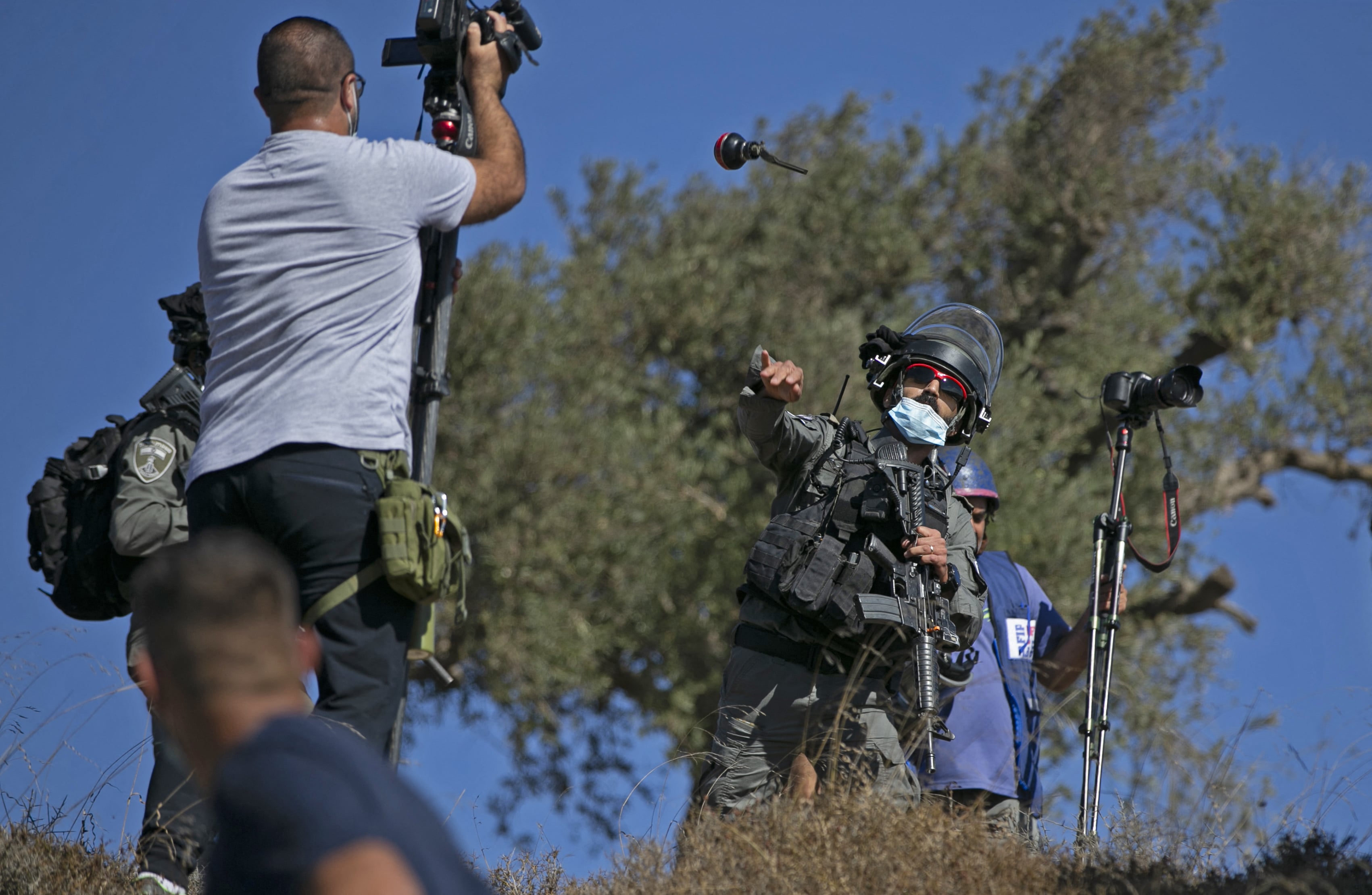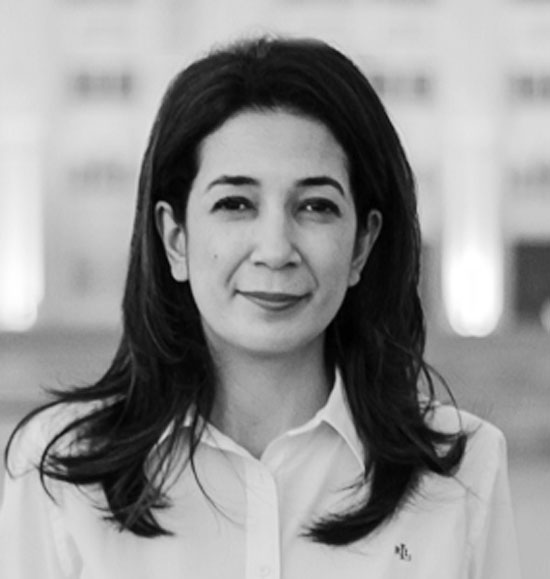Judith Butler argues that the world often fails to respond equally to human suffering, as the “grievability” of human life is unequally allocated.[1] During the past month, the way the Palestinian struggle has been reported by global media sources downplays Palestinian suffering and uses a number of strategies to prioritize Israeli narratives. The media adopts double standards when it comes to the Palestinians struggle for rights, while disguising Israeli war crimes using semantics and ambiguity. It largely disregards the framework of international law and the Israeli occupation as the contexts within which these events are unfolding, and equates the two powers using the “both sides” fallacy, as though the Palestinians and Israel have the same amount of power, military might, technological access and resources.
Proper Coverage of Palestine Makes Headlines
There is a notable a shift towards more recognition of the Palestinian people and more inclusion of their voices in the mainstream American media. The New York Times, for instance, had a front page story on May 28 discussing “The misery of life under occupation.”
More importantly, there were examples of balanced and ethical journalism within the context of the coverage of the Palestinian struggle. For example, Mehdi Hassan, an MSNBC news show host, has had excellent coverage of the topic. On May 12, Hassan wrote “In the U.S. [media], we tend to only talk about the Gaza Strip when things explode - when Hamas fires rockets into Israel like they did this week. But when we do that, we miss the bigger context."
However, such examples of balanced coverage of Palestine actually became a source of controversy in American media. Fox News, the Daily Beast and other publications commented the different coverage done by both Ayman Mohyeldin and Mehdi Hasan. Noura Erakat, an American human-rights attorney, thanked CNN’s Christiane Amanpour for giving her space to call on Israel to end its blockade on Gaza as a means of “de-escalating violence.”
Fox News, on the other hand, criticized an Instagram post by Mohyeldin highlighting the imbalance in the military power between Israel and the Palestinian People. Fox News dedicated a story to respond to his Instagram statement. This is how unusual good coverage is and how seriously it is taken.
Blaming the Victim: Interrogating Palestinian Sources
In the globally powerful mainstream Western media, Palestinian victims continue to be regularly, faceless and nameless, and hence are rarely mourned. Israeli suffering is brought home to the readers and viewers in words, pictures and videos with clear identification of the perpetrator. Palestinian loss and suffering, by contrast, is rarely brought to the attention of global audiences without the accusation that the Palestinian people brought this suffering upon themselves.
The context of Palestinian dispossession, Israeli occupation and Israeli brutality are scarcely mentioned in the coverage. Israel’s two invasions of the Al-Aqsa mosque in one week, its prevention of Palestinian worshippers from practicing their religious rituals during Ramadan, and its attacks on them inside the mosque, wounding more than 500 people, were hardly noted as a newsworthy development. These journalistic practices bring into question the judgements of many journalists and editors.
The Palestinian sources interviewed in many of these news media outlets are often quoted after Israeli sources. During May 6-9, quotations in NYT and Reuters from Israeli state and military officials consistently came before any reference was made to Palestinian sources. In live TV interviews, Palestinian sources are consistently asked to condemn Hamas or “the protestors’ violence” before they discuss the events, let alone state their perspective on them. As if the very presence of the Palestinians has to be justified though self-blame and clear acceptance of Zionist propaganda and accusations of instigating violence.
Unlike the Palestinian sources, no Israeli military or political source on TV interviews was asked to condemn the wrongdoing of the Israeli brutality against Palestinian protestors, the two invasions of the Al-Aqsa mosque or the use of rubber-coated bullets and stun grenades against worshippers inside the mosque. Israeli sources were not also interrogated over the brutal arrests of Palestinian protestors for defending their fellow worshippers, and of the protestors who were demonstrating against their forced dispossession in East Jerusalem.
Passive Voice and Guilt-Shifting
When the offender in an event is a Palestinian, their identity appears clearly in the headline and active voice is used in the report and the headline. Conversely, when the offender is an Israeli police officer, a member of the Israeli military, or an Israeli settler, both the identities of the offender and the victim are obscured and the event is depicted as an “escalation” or “clash.” During the Jerusalem protests, Israeli police injured between 200 and 300 Palestinians in a few days.
Many news headlines lacked specific casualty figures and did not specify the identities of the wounded or their assailants. France 24 English reported “hundreds injured as Israeli police, Palestinians clash at Jerusalem’s Al-Aqsa mosque.” Almost the same headline appeared on Reuters: “Israeli police, Palestinians clash at Jerusalem’s Al-Aqsa, scores injured.” One day later, the BBC used the same headline: “Al-Aqsa mosque: Dozens hurt in Jerusalem clashes", without clearly identifying the perpetrators or those wounded. There were also no distinctions made about the severity of those wounded, nor the power difference between Palestinian protesters and worshippers, and the well-equipped Israeli police.
Prioritizing Israeli Sources in Reporting
News reporting notably intensified after Hamas responded to the Israeli attacks on Palestinians in occupied East Jerusalem. Major news sources, including the New York Times, the BBC, the Associated Press, Reuters, Deutsche Welle and France 24 English, avoided any reference to the occupation, the illegitimacy of Israel’s action in East Jerusalem, and the brutality of the Israeli police against protestors and worshippers, for which there is no lack of evidence in images, video, and testimony. Many of these media outlets used headlines along the lines of “Jerusalem violence leads to rockets, air strikes.”
This use of vague language as a means of covering up the Israeli violations and violence against the Palestinians was noted by Husam Zomlot, the Palestinian Ambassador to the United Kingdom, when he was interviewed for the BBC’s Newsnight program. In the interview, the anchor, Emily Maitlis, invited Zomlot repeatedly to condemn Hamas’s attacks on Israel. Zomlot criticized Maitlis’s line of questioning and told her that she was addressing the “symptom”, Hamas’s attacks, and ignoring the “illness,” meaning the Israeli occupation of the Palestinian land. He also accused her interview approach of displaying “double standards.”
A young Palestinian activist from Shaikh Jarrah neighborhood in occupied East Jerusalem, Mohammad El-Kurd, tweeted an excerpt from his interview with CNN, saying that “the framing was problematic, so I pitched in.” The anchor asked him, “Do you support the protests, the violent protests, that have erupted in solidarity with you and other families in your position right now?” Mohammad El-Kurd responded with a question: “Do you support the violent dispossession of me and my family?” El-Kurd’s house is one of the houses that were facing forced expulsion by the Israeli police at the beginning of the current crisis between Israel and the Palestinian people. Moreover, half of his house was forcefully occupied by Israeli settlers in 2009.
The Brutality of the Occupation: Where is the Context?
Many mainstream media outlets have decided to ignore and conceal the glaring crimes of the Israeli police and military against the Palestinians through the use of the passive voice and selective language. Further, they have also neutralized and ignored key contextual facts, including the Israeli occupation of the West Bank, the Israeli blockade of the Gaza Strip lasting about 14 years, and the considerable disparity in military, infrastructure and technological power between Israel on the one hand and the Palestinians on the other. The Israeli military ranks among the most technologically sophisticated armies in the world. Many outlets also sideline or overlook the Palestinian narrative, and the fact that many Israeli practices are illegal under international law, in some cases, even constituting war crimes.
In many of the headlines of the news reports, terms such as “holy shrine” and “holy site” were used to refer to the Al-Aqsa mosque. For the Associated Press and the New York Times, the Al-Aqsa Mosque is a “holy shrine,” while ABC refers to it as a “holy site.” The fact that the 200–300 wounded Palestinians were mostly protestors or worshippers in the Al-Aqsa mosque and its surrounding area, spending the last 10 days of Ramadan in I’tikaf, —the practice of self-isolation with the intention of solely dedicating your time to the worship of Allah— was seen as irrelevant and was completely absent from the reports.
To bring these editorial decisions into context, one has only to imagine the global media outcry if a church were raided during Easter holidays or if Jewish worshippers were attacked by the police in a synagogue during Hanukkah. As the University of Michigan historian, Juan Cole wrote, “What if Israelis attacked the Basilica of St. Peter on Easter? That’s how Muslims feel about the assault on the al-Aqsa Mosque in Jerusalem.”
The forced dispossessions of the Shaikh Jarrah families was mostly reported as an “eviction.” Israel characterized the story as a “real estate dispute,” a notion also used by major news media sources. The New York Times wrote “Evictions in Jerusalem Become Focus of Israeli-Palestinian Conflict.” In several reports, the Shaikh Jarrah neighborhood is neither mentioned nor identified as a part of occupied East Jerusalem.
The use of terms like “contested” or “disputed” completely conceal the identity of the Palestinian residents, their history in the neighborhood, and the fact that East Jerusalem is under military occupation. The Guardian, a newspaper that has been known for decades for its anti-establishment positions, also fell into the trap of obscuring key facts of the story and failing to report professionally on the events. Similar headlines to those above are to be found on its website, such as, “Series of events come together to inflame an already volatile situation in the holy city.”
How Fair is Global Media Coverage of the Palestinians?
When Palestinians are victims, their identity is hidden. When they are perpetrators, their nationality is highlighted. The lack of key contextual facts such as the persistence and consequences of the Israeli military occupation, which has lasted over five decades, is another practice which has enabled further reinforcement of the Israeli state narrative, undermined the ethical standing of many news organizations, and has provided a disservice to readers and viewers.





































